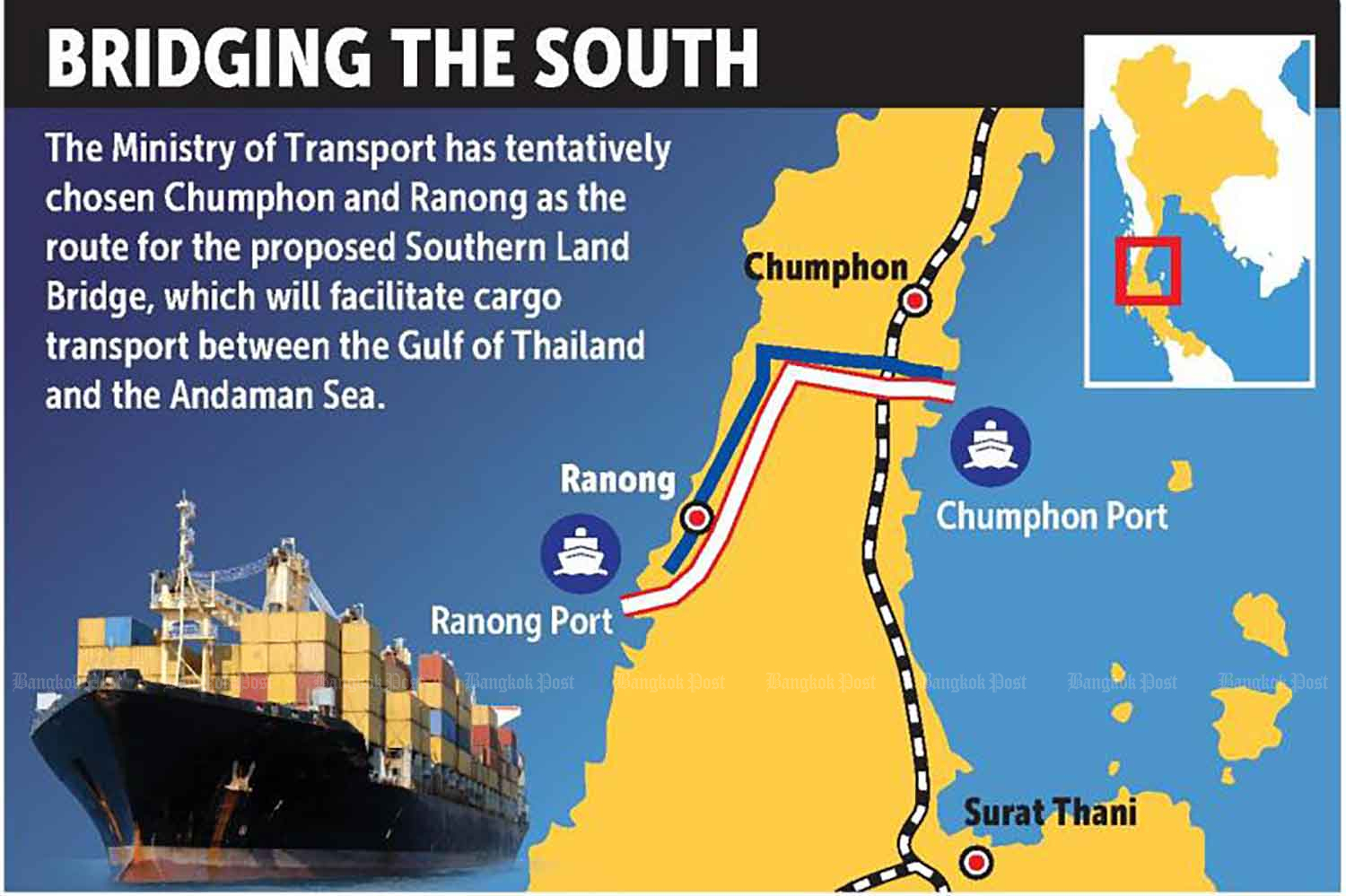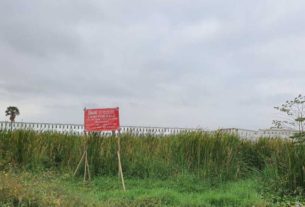 Thailand’s proposed Land Bridge – A Project for No one
Thailand’s proposed Land Bridge – A Project for No one
The Land Bridge project, a flagship initiative under the leadership of Srettha Thavisin, has been touted as the catalyst for Thailand’s economic growth engine. However, despite the government’s fervent promotion, the project has failed to attract concrete interest both internationally and domestically. This piece delves into the geopolitical intricacies surrounding the Land Bridge project, examining the lack of alignment with major players, particularly China, and its implications on Thailand’s foreign policy.
China’s Geopolitical Priorities and the Malacca Dilemma:
China’s geopolitical strategy plays a pivotal role in understanding the fate of the Land Bridge project. The Malacca Dilemma, a situation where China heavily relies on the Strait of Malacca for its energy imports, has driven the nation to seek alternative routes. Surprisingly, the Land Bridge project has failed to capture China’s interest, as evidenced by their preference for investments in Myanmar. China’s substantial investments in Myanmar, such as the deep-sea port in Kyaukphyu, Rakhine State, and the Sino-Myanmar pipeline projects, highlight the country’s commitment to securing alternative routes and protecting its strategic interests.
Myanmese Civil War and China’s Interests:
China’s involvement in the ongoing Myanmese civil war further underscores its strategic priorities. The primary objective for China is to safeguard its investments in Myanmar, particularly the Deep Sea Port and the Pipeline projects. By mitigating the conflict, China aims to ensure stability in the region, protecting its economic interests rather than supporting the Land Bridge project in Thailand. Myanmar’s weaker negotiating position and geographical proximity to China make it a more viable alternative to address the Malacca Dilemma.
Questioning the Value of the Land Bridge Project:
Given China’s strategic choices, the Land Bridge project loses its appeal as a solution to the Malacca Dilemma. Without China’s involvement, the only potential benefiters from the Land Bridge project are Japan, Korea, and Taiwan. It is entirely unclear if the cost savings through the Land Bridge is sufficient to entice these nations. Consequently, the Land Bridge project risks becoming a white elephant, lacking both the financial backing and geopolitical support necessary for its realization.
Geopolitical Missteps and Economic Decoupling:
The Land Bridge project’s struggle is emblematic of a larger systematic error in Thailand’s foreign policy. Thailand continues to adhere to outdated strategies, derived from the Vietnam War era, focusing on attracting foreign investments from major economies like the U.S., Japan, or China. However, in an era of economic decoupling, reversed globalization, and onshoring, the lack of geopolitical alignment poses a significant challenge in attracting foreign investments.
Thailand’s Foreign Policy Shortcomings:
Thailand’s foreign policy lacks a comprehensive regionalization strategy, particularly in the context of the Mekong region. By failing to recognize the potential for a more influential role in ASEAN and particularly the Mekong region, the Land Bridge project loses its significance. In a hypothetical scenario where Thailand leads economic integration activities in the Mekong, the Land Bridge could be pivotal, serving as an economic gateway to 300 million people. However, without such recognition, the Land Bridge project remains isolated and inconsequential to the broader regional dynamics.
Conclusion:
The Land Bridge project, heralded as a beacon of Thailand’s economic growth, finds itself in a geopolitical quandary. China’s strategic choices and investments in Myanmar highlight the project’s diminishing relevance in addressing the Malacca Dilemma. Without a coherent geopolitical strategy and recognition of regionalization’s importance, the Land Bridge project risks becoming a mere paper policy. Thailand’s foreign policy must evolve beyond outdated playbooks, focusing on regional integration and playing a more dominant role in the Mekong to ensure the success of ambitious projects like the Land Bridge.
Source: https://www.thaienquirer.com/51615/land-bridge-a-project-for-no-one/


